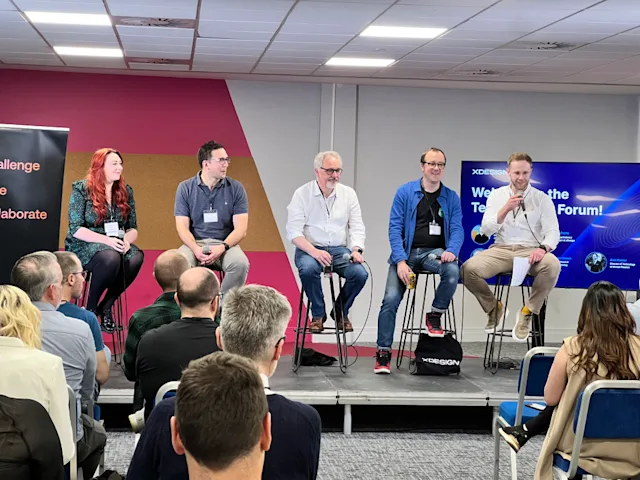Leadership can sometimes feel like something we just ‘fall into’. You know the score: land a job, pay your dues for a few years and get that vital middle management experience under your belt. Suddenly, you’ve become the rolling stone that eventually gets its edges knocked off to become a smooth, gleaming leadership… er, pebble!?
Whilst some leaders are probably born, I think they’re probably the exception to the rule. Given the journey to solid leadership is a gradual, organic process for many of us - one fraught with a fair few ups and downs - it’s always a good idea to take a step back from time- to-time. Remember, being a leader requires a completely different set of skills which you’ll need to work at - just like you did to acquire those needed at the start of your career. Part of the process is all about, taking stock, breathing in those leadership successes, whilst assessing and owning those failures.
So far so good, right? But, how often do leaders actually park the day job and take that much needed step back?
Well, I’m pleased to say, myself - along with a panel of tech industry superstars - did just that recently to an audience of our peers (and delegates) at xDesign’s Tech Leaders Forum, held in our Edinburgh office. We aired our dirty leadership laundry, bared our industry battle scars and (hopefully) proved that it doesn’t have to be lonely at the top.
Here are three powerful takeaways from the evening:
1. Admit shortcomings, show vulnerability
No-one is given a leadership role because they have all of the right answers all of the time. Leadership is as much about directing change, championing resilience and navigating choppy waters when the going gets tough (...and it will!) as it is about riding the crest of success’s BIG wave.
Panellist Alex Kantor, Director of Technology at Modulr Finance, explained how leaders need to admit (and always own) failures when they occur, learn from them and weave these learnings into the fabric of a company by encouraging people and teams to discuss them. Put simply, failures are as important as successes. He said:
“Leaders often think that admitting failure is a weakness. However, when harnessed in the right way, these failures can be used as a catalyst for growth within tech organisations. Leaders have to be the person that changes the perceptions of what failure is and how it can be used positively.”
Mari Currie, one of xDesign’s Principal Delivery Managers also talked about the power of curiosity and empathy - and how they can be put to good use within an open, positive culture to drive a growth mindset amongst leaders and their teams. She said:
“To be truly curious you need to be an empathetic person. In tech, these two can be combined within the right culture to deliver some extremely positive outcomes for individuals and the businesses they work within. Without them, leaders risk stunting growth within their organisation.
2. Stay off the pitch
Panellist Scott Liddell - veteran tech leader, board advisor and trustee - reminded us all that you should consciously think about what type of leader you want to be.
Relaying his own experience, Scott told the audience that he wanted to be a people-focused leader who left a positive mark on the people he was leading. One that also trusts people to do their job, whilst providing them with the space they need to thrive.
In fact, he summed up his approach with a useful analogy - one which particularly struck a chord with me as a football fanatic. He stated that leaders should see themselves as football managers - ones that stay on the sidelines and don’t get involved in the action on the pitch. He said:
“As a football manager, it’s your job to sign the right players, get the right formations together, and provide the right tactics for your players. Once you’ve done all of these things, you should leave the players to do their job. Bad managers are the ones that march on the pitch and shout for the ball.”
Getting involved on the pitch can often undermine your players and can only serve to demonstrate your own insecurities as a leader.
3. Balancing cultural and commercial elements
In his oft-quoted phrase, the famous management consultant, Peter Drucker said: “Culture eats strategy for breakfast.” Get the culture right and the business will take care of itself to some extent.
Interestingly, all of our panellists talked about the critical importance of developing a strong culture within their business as being the route to success. Even when entering choppy waters, investment in your culture is critical.
For instance, Fraser Brown, Global Head of IT at Brewdog, talked about how an investment in culture had seen his organisation navigate some well-publicised challenges to retain its place as one of the nation’s biggest success stories.
Balancing culture and commerciality was also a big topic of discussion among the panellists. Mari stated how leaders need to ensure they’re doing everything they can to ‘balance the scorecard’ of these two critical business elements.
She suggested that cultures are not static and need to change constantly, particularly in fast-growing companies. In these types of businesses, it’s up to leaders to take people on the growth journey with them and provide the layer of communication needed to retain the hearts and minds of employees - no matter how revolutionary the changes are.
Some closing thoughts
When all is said and done, leaders aren’t the godlike geniuses they’re made out to be by the multiple (and often naff) ‘business influencers’ you’ve no doubt seen across your socials. Leaders are themselves still ‘works in progress’. The xDesign Tech Leaders Forum continues to be a platform for leaders in the community to share, open up and discuss the learnings so that we grow stronger together.

